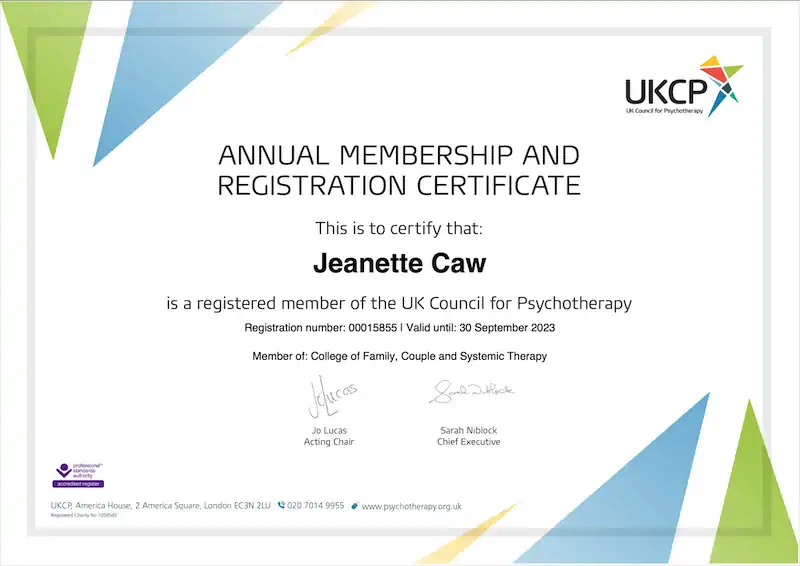Counselling for Stress and Anxiety
Stress and anxiety exist along the same continuum. We often say we feel stressed when we feel overwhelmed by too much to do or a task that seems herculean and unmanageable. However, a certain amount of stress is necessary for us to live our daily lives. Without stress there would be little compulsion to get out of bed in the morning and go to work to ensure our livelihood. At slightly increased levels, stress and anxiety can help motivate us to prepare for key events such as interviews or exams. There is a school of thought that stress and anxiety are evolutionary functions.
‘Our minds evolved to help us survive in a world fraught with danger’. – Russ Harris
As primitive beings we needed to constantly scan the landscape for danger. Being able to live in social groups enhanced our chances for survival and therefore belonging and having a role to play became important. Today the dangers are not wild animals or tribal warfare, but risks such as losing one’s job, being rejected, getting ill etc. However, the need to belong and survive is still as great and we unconsciously ensure this by continually striving, comparing ourselves to others and needing to fit in and be seen as competent. The global village we now live in has contributed to this pressure as we are constantly bombarded with images in the media of what it means to successful. Most of the time, these stressors in life, are manageable and we unconsciously live with them, fulfilling our evolutionary duty and survival instinct. However, sometimes the threats we experience (either actual or imagined) become overwhelming and then what was normal, everyday stress can tip into anxiety.
This kind of generalised anxiety is known as Generalised Anxiety Disorder. It is characterised by worrying thoughts or ‘ruminations’. These thoughts go round and round our heads seemingly without end. They may be about the present or what might happen in the future. Whilst we may think we are alone in experiencing anxiety, this is not true. At any one time one in twelve people will be experiencing generalised anxiety. With anxiety we often under-estimate our ability to cope with difficulties and amplify the extent of the threat we are facing in our minds. This can make us super sensitive to events that usually wouldn’t affect us, for example, another driving being rude about our driving. It can seem like we live on a constant wave of physical and mental tension from which there is never any respite.
‘In worry, we anxiously o over things again and gain in a way that is unhelpful because it does not actually help us sort out the difficulties that we are worried about’ - Chris Williams.
Physical symptoms accompany anxiety. These are:
• Loss of appetite
• Inability to relax
• Restlessness
• Difficulty sleeping
• Dizziness
• Butterflies in the stomach
• Sweating
• Breathing faster
• Speeded up heart rate
• Panic
• Tearfulness
• Nausea
These physical symptoms are actually our body utilising its flight/fight response to danger. When in a risky situation, such as a war or natural disaster, such responses serve us well. They ensure that our bodies are primed to take action and we are on hyper-alert. However, with generalised anxiety, the threat to our lives is not imminent but our bodies behave as though it is. It is almost as if we have become stuck in a high speed gear and we need to teach our brains how to shift into a lower gear.
Psychotherapy or Counselling for Anxiety
My approach to helping clients with anxiety is to start by explaining what anxiety is and how it functions. Understanding that the symptoms that accompany anxiety are not a sign that there is something dreadfully wrong but an indication that we have become stuck on the fast track can be hugely relieving in itself. I then take clients through a programme where we look together at how to manage the physical symptoms and teach the mind and body to relax again. Mindfulness is helpful too and I teach mindfulness techniques and encourage a brief mindfulness practice each day.
As with depression, it is important to identify the thought patterns we have because these are likely to be maintaining our anxiety. I often suggest that clients record their thoughts for a little while, keeping a diary of when they feel at their worst. This can help us work out together the types of thoughts they are having that are unhelpful and ways to challenge these. Once the ability to do this has been achieved, I introduce concepts and techniques from Acceptance and Commitment Therapy which is extremely effective in managing generalised anxiety.
This work all occurs within a safe, therapeutic relationship. I work at the client’s pace and in the way that best fits for them. If clients do not want to engage in thought restructuring or diary keeping, then that is fine and I will work with them in a way which suits them. The work that I undertake is underpinned by the belief in the importance of the therapeutic relationship. It is essential that clients feel they can be whoever and however they need to be in their relationship with me. I hope to provide a containing presence where uncomfortable thoughts and feelings can be talked about without fear of incrimination. I concentrate on enabling my clients to feel the best about themselves they can, believing that self-acceptance is an important stage of recovery.
Often, after the worst of the anxiety has been alleviated, I encourage clients to look at what historical rules and beliefs may dominate their thinking. Being clear about internalised concepts of how they ‘should’ be gives the opportunity to decide whether this is the way they wish to continue to live. Having greater awareness enables us to have increased choices in our lives. Therapy can provide a space for clients to experiment with different ways of being, both in the therapy room and in between sessions in the external world. Changing long held patterns of behaviour can take time but this is greatly speeded up when therapy is used to support this process.
I have worked for many years with clients experiencing anxiety. Many of them have recovered with only 6 sessions. Some have chosen to remain in therapy to deal with the underlying issues that may have led them to feeling anxious in the first place.
‘Your emotions are slaves to your thoughts, and you are the slave to your emotions’ Elizabeth Gilbert.
If you would like to arrange an initial session or contact me about any of the other services mentioned in these pages
I practice within Sheffield from a venue in S7.

